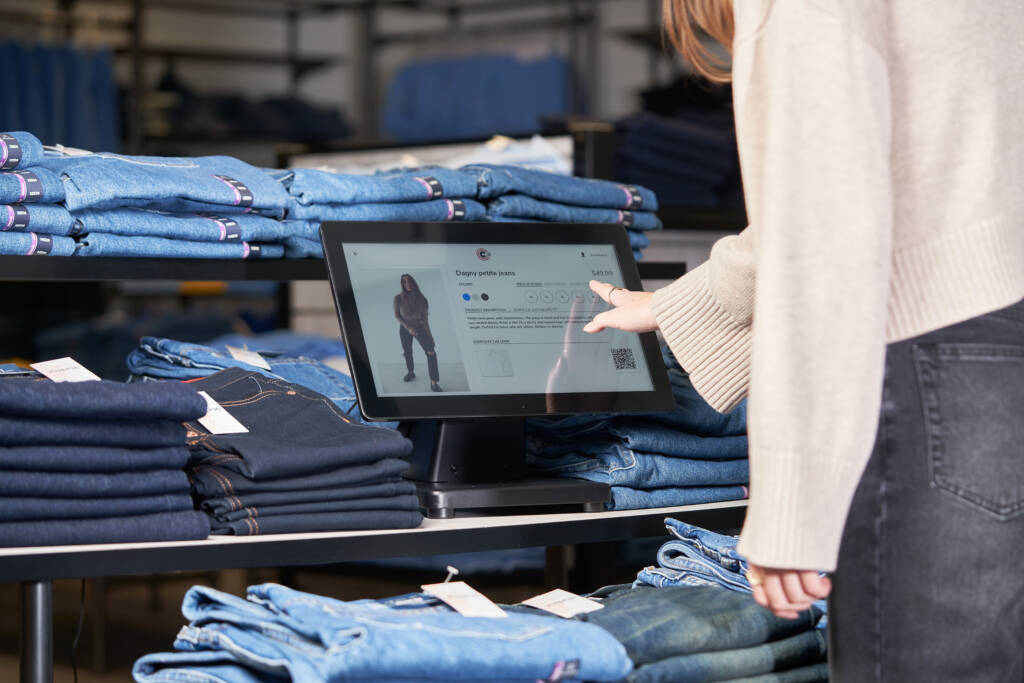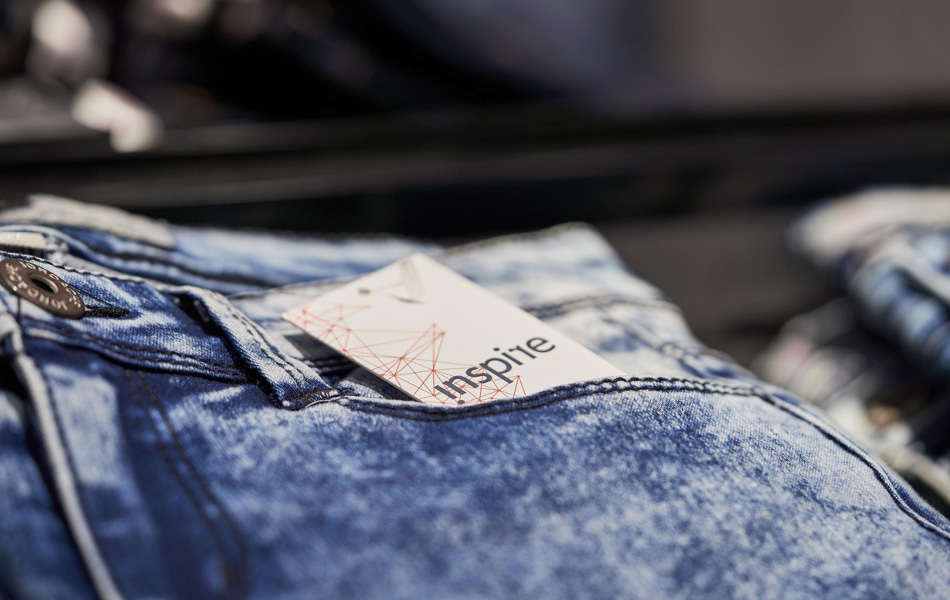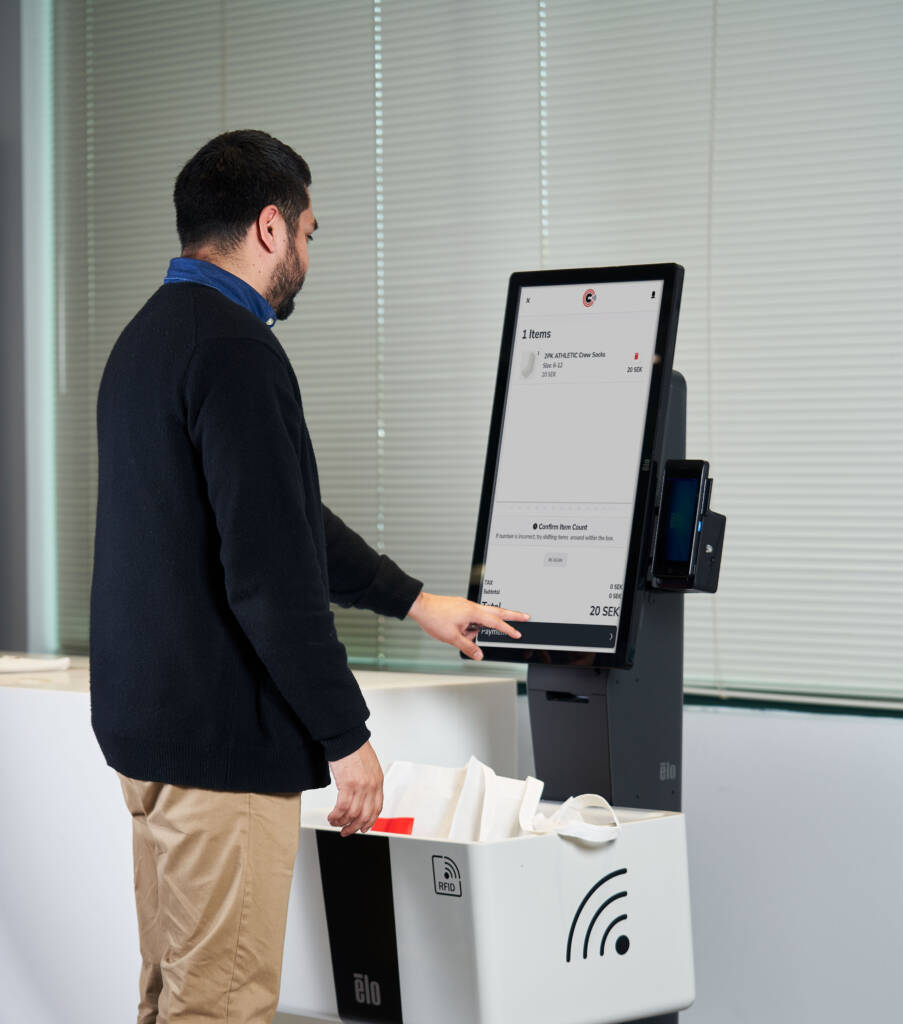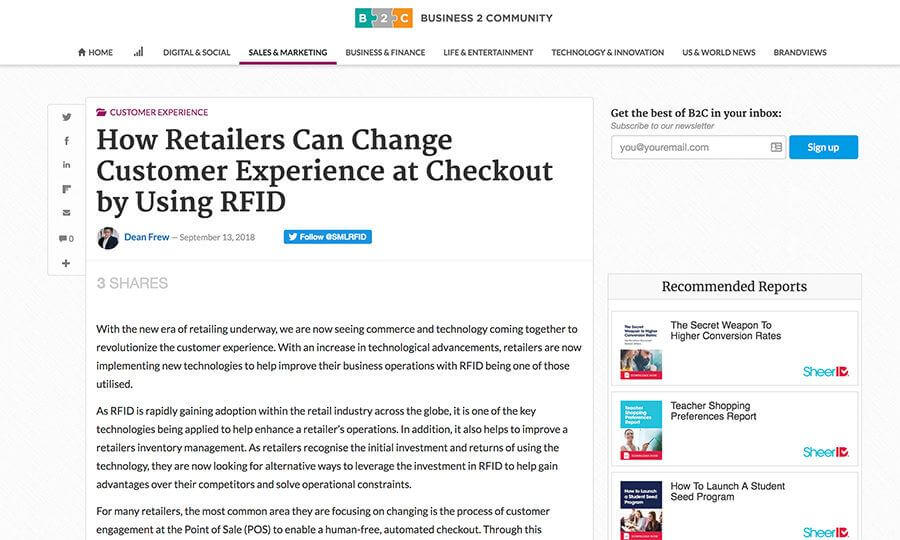How Sustainable RFID is Transforming Retail Practices
Driven by the need to live eco-balanced and sustainable lives, shoppers are no longer just motivated by quality and price as their purchasing decisions are now based on whether or not they consider a retailer or brand environmentally ethical. For example, 55% of global online consumers across 60 countries say they are willing to pay more for products and services provided by companies that are committed to positive social and environmental impact.
As a result, the retail sector as a whole is undergoing a dramatic shift in order to keep up with these consumers with the fashion industry, in particular, undergoing such a significant change. Leading European retailer, H&M, recently launched its latest ‘Conscious’ collection, in a bid to make its clothing more sustainable by using up to 50% recycled materials. Zara has also announced that all of its collections will be made from 100% sustainable fabrics before 2025.
In addition to some clothing brands and retailers committing to using environmentally sourced materials, they are exploring other ways in which they can be more eco-friendly businesses. For instance, Walmart, IKEA, and H&M have taken steps in which they can positively impact their supply chains to move towards more sustainable retailing. This is being done largely by leading collaboration across their supply chains to reduce waste, increase resource productivity and optimize material usage.
As retailers and brand owners continue to look for ways to be more environmentally balanced, the key is for the industry to share the same mindset and work together in order to achieve a retail ecosystem that not only thrives but is sustainable. Therefore, retailers need to continue looking at working with partners and suppliers who share the same ethos and vision for a sustainable future. As retailers activity making their products more sustainable continues, it is also important that they focus on how to reduce the carbon footprint of their packaging materials to further ensure for more eco-friendly processes.
In July, SML launched its new EcoInspire™ brand across its innovative tagging products including woven labels, self-adhesive labels, hangtags, and RFID-enabled tags, as well as be seen in SML’s packaging products.
EcoInspire™ provides environmentally-friendly sources for products including woven labels using recycled materials, such as discarded plastic bottles. In addition to sustainable sources, products are also designed with efficient product manufacturing processes that reduce waste, minimize resources and carbon footprints.
The EcoInspire™ range of high-performance RFID inlays completely removes the PET carrier that holds the inlay together and is replaced with a paper carrier. This changes the decomposition period down from between five to ten years to just six weeks meaning that retailers can now have the enhanced inventory management provided by item-level RFID without compromising on their sustainability goals.
Sustainability continues to be a prominent subject, not just for the fashion sector but for many industries worldwide. With environmental issues constantly challenging the living conditions of every species, SML recognizes the critical need to address this topic through the products they produce and the way in which it conducts business.
To find out more about SML’s EcoInspire™ brand, contact us here: info@sml-rfid.com










